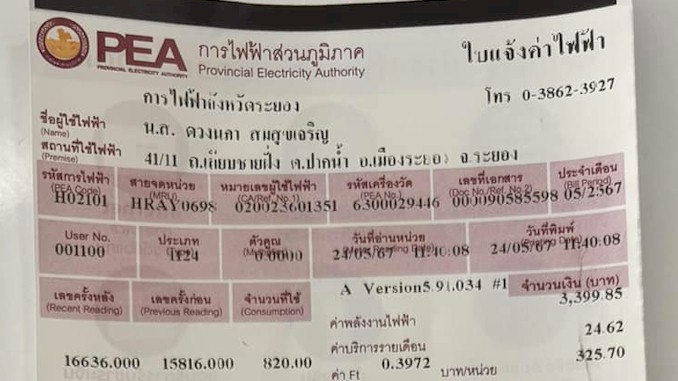How Do I Get Over Jet Lag When Returning Home
If you’re like me, jet lag can be a major hurdle when returning from a trip. The fatigue, disorientation, and overall sense of sluggishness can put a damper on your post-travel enthusiasm. But fear not, dear reader, because I have the solution you’ve been searching for. In this blog post, I will share my tried-and-true methods to conquer jet lag and reclaim your energy and productivity upon returning home. Say goodbye to those sleepless nights and groggy mornings, because with my expert advice, you’ll be back to your vibrant self in no time. Get ready to bid farewell to jet lag and embrace a seamless transition back to your daily routine.
Jet lag, also known as desynchronosis, is a temporary condition that occurs when the body’s internal clock is disrupted due to crossing multiple time zones during air travel. To overcome jet lag when returning home, implementing a few key strategies can greatly assist in readjusting your sleep-wake cycle and minimizing its effects. By carefully managing your exposure to light, adjusting your sleep schedule gradually, staying hydrated, and making mindful choices regarding caffeine and alcohol consumption, you can effectively alleviate the symptoms of jet lag and swiftly regain your normal rhythm.
But wait, there’s more! In addition to these essential strategies, I’ve uncovered a treasure trove of insider tips and lesser-known techniques that will revolutionize your approach to overcoming jet lag. From natural remedies and dietary adjustments to smart travel planning and innovative sleep aids, I’ve delved deep into the realm of jet lag solutions to bring you a comprehensive guide that leaves no stone unturned. So, if you’re eager to unlock the secrets of conquering jet lag like a seasoned traveler, keep reading and prepare to embark on a journey towards a jet lag-free existence. Trust me, the adventure is just beginning!
Why Does Jet Lag Occur and How Does it Impact Your Body?
Jet lag is a phenomenon that affects travelers who cross multiple time zones, disrupting their internal body clock, also known as the circadian rhythm. To understand why jet lag occurs, we must delve into the intricate workings of our body’s biological processes and the influence of external factors such as light and sleep.
Our bodies operate on a 24-hour internal clock, regulated by the release of hormones and neurotransmitters that control various physiological functions. This clock, primarily governed by the suprachiasmatic nucleus in the brain, relies on external cues, particularly light and darkness, to synchronize with the natural day-night cycle.
When we travel across time zones, our body clock becomes misaligned with the local time at our destination. This misalignment causes confusion within our internal systems, leading to a range of symptoms collectively known as jet lag. The severity of jet lag can vary depending on factors such as the number of time zones crossed, the direction of travel, and individual susceptibility.
The impact of jet lag on the body can be wide-ranging and extend beyond mere feelings of fatigue and disorientation. Studies have shown that jet lag can disrupt various bodily functions, including sleep patterns, cognitive performance, digestion, hormone regulation, and even immune system activity. The effects of jet lag can persist for several days as the body strives to readjust to the new time zone.
Jet lag’s disruptive effects on sleep are particularly noteworthy. Our sleep-wake cycle is closely tied to our circadian rhythm, and when this rhythm is thrown off balance, sleep patterns can be severely disrupted. Jet lag often leads to difficulties falling asleep at the desired local time and increased daytime sleepiness, impairing overall sleep quality and leaving individuals feeling groggy and unrefreshed.
Moreover, the impact of jet lag can extend beyond the physical realm, affecting mood, concentration, and overall well-being. The cognitive effects of jet lag, including decreased alertness, slower reaction times, and difficulty concentrating, can hinder productivity and enjoyment during the initial days of returning home.
To fully grasp the complexity and impact of jet lag, it’s crucial to recognize the interplay of various factors, including biological processes, external cues, and individual variations. By understanding the underlying mechanisms behind jet lag, we can begin to explore effective strategies to mitigate its effects and optimize our transition to a new time zone. In the following sections of this blog post, we will delve deeper into these strategies, offering practical insights and expert advice to help you overcome jet lag and reclaim your energy and productivity upon returning home.
Effective Strategies to Combat Jet Lag: Regaining Your Energy and Productivity
Regaining your energy and productivity after experiencing jet lag is crucial for a smooth transition back to your daily routine. While jet lag can be a formidable challenge, there are several proven strategies that can help minimize its effects and accelerate your recovery. By incorporating a combination of sleep management, light exposure, hydration, and mindful choices regarding caffeine and alcohol consumption, you can regain your vitality and enhance your overall well-being.
One of the key strategies to combat jet lag is carefully managing your sleep patterns. Gradually adjusting your sleep schedule a few days before your trip can help ease the transition to the new time zone. By shifting your bedtime and wake-up time closer to those at your destination, you can help your body adapt more smoothly upon arrival. Additionally, ensuring a conducive sleep environment, such as a dark, quiet room, and practicing relaxation techniques, can promote better sleep quality and aid in combating jet lag.
Another essential factor in combating jet lag is effectively managing your exposure to light. Light is a powerful regulator of our internal body clock, and strategic light exposure can help synchronize your circadian rhythm with the new time zone. Seeking bright light in the morning at your destination and avoiding bright light in the evening can help reset your body clock faster. Additionally, wearing sunglasses or using light-blocking devices can mitigate the disruptive effects of light during inconvenient times, such as when traveling westward and facing prolonged daylight exposure.
Staying hydrated is vital in combating jet lag and maintaining optimal functioning of your body. Dehydration can exacerbate the symptoms of jet lag, including fatigue and headaches. It is recommended to drink plenty of water before, during, and after your flight to ensure proper hydration. Avoiding excessive caffeine and alcohol consumption, as they can disrupt sleep patterns and dehydrate the body, is also crucial for mitigating the effects of jet lag.
Furthermore, it is important to be mindful of your dietary choices during and after your trip. Opting for nutritious, well-balanced meals can provide the necessary nutrients and energy to support your body’s recovery. Incorporating foods rich in antioxidants, such as fruits and vegetables, can help counteract the oxidative stress often associated with travel and jet lag. Additionally, avoiding heavy meals close to bedtime can promote better sleep and aid in readjusting your digestion to the new time zone.
While these strategies have shown effectiveness in combating jet lag, it is important to remember that individual responses and preferences may vary. Experimentation and fine-tuning may be necessary to find the combination of strategies that works best for you. By adopting these effective strategies and making gradual adjustments, you can successfully combat jet lag, regain your energy, and restore your productivity, allowing you to make the most of your time after returning home.
The Power of Light and Sleep: Managing Exposure for Faster Adjustment
The interplay between light and sleep is a critical factor in managing jet lag and facilitating a faster adjustment to a new time zone. Light exposure acts as a powerful signal to our internal body clock, influencing the timing of various physiological processes and helping to synchronize our circadian rhythm with the local time at our destination.
Research has shown that exposure to bright light, particularly in the morning, can help advance our internal clock and accelerate the adjustment process. Morning light exposure suppresses the production of melatonin, a hormone that promotes sleepiness, and signals to our body that it’s time to wake up and start the day. A study conducted by researchers at the University of East Finland found that morning bright light exposure significantly reduced the duration of jet lag symptoms and improved alertness and cognitive performance in travelers.
Conversely, exposure to bright light in the evening can have an opposite effect, delaying the internal clock and making it more difficult to fall asleep at the desired local time. In a study published in the Journal of Clinical Sleep Medicine, researchers found that exposure to evening bright light delayed the timing of melatonin secretion and disrupted the sleep-wake cycle in individuals with jet lag. Therefore, it is crucial to limit exposure to bright light in the evening, especially in the hours leading up to bedtime, to promote a smoother adjustment to the new time zone.
Utilizing light-blocking devices, such as blue-light-blocking glasses or screen filters, can also aid in managing light exposure during travel and upon arrival. These devices reduce the exposure to blue light emitted by electronic devices, which can interfere with the production of melatonin and disrupt sleep patterns. By wearing blue-light-blocking glasses or using screen filters on electronic devices in the evening, you can help preserve your body’s natural melatonin production and promote better sleep quality.
In addition to managing light exposure, optimizing your sleep environment is crucial for faster adjustment to a new time zone. Creating a sleep-friendly environment involves keeping your bedroom dark, quiet, and cool. Using blackout curtains or eye masks can help block out external light, while earplugs or white noise machines can minimize disturbances from noise. Maintaining a cool temperature in the bedroom, typically between 60 to 67 degrees Fahrenheit (15 to 19 degrees Celsius), can enhance sleep quality and promote a more restorative rest.
Understanding the power of light and its influence on sleep is paramount in managing jet lag effectively. By strategically managing light exposure, particularly in the morning and evening, and creating an optimal sleep environment, you can synchronize your internal body clock with the local time at your destination, facilitating a faster adjustment and minimizing the disruptive effects of jet lag.
Gradual Sleep Adjustments: Easing into Your Home Time Zone
Making gradual adjustments to your sleep schedule is a key strategy for easing into your home time zone and minimizing the effects of jet lag. By gradually shifting your sleep patterns closer to the local time at your destination, you allow your body to adapt more smoothly and facilitate a faster adjustment.
The rationale behind gradual sleep adjustments lies in the fact that our body’s internal clock adjusts slowly to changes in sleep and wake times. Studies have shown that the circadian rhythm adjusts at a rate of approximately one hour per day. Therefore, if you are crossing multiple time zones, it is advisable to start adjusting your sleep schedule a few days before your trip.
To begin the gradual adjustment process, determine the desired bedtime and wake-up time in your home time zone. If you are traveling eastward, meaning you will be ahead of your home time zone, gradually advance your sleep schedule by going to bed slightly earlier and waking up slightly earlier each day leading up to your trip. Conversely, if you are traveling westward, gradually delay your bedtime and wake-up time to align with the local time at your destination.
While adjusting your sleep schedule, it is essential to maintain consistency in your sleep routine. Aim to go to bed and wake up at the same times each day, even on weekends or days leading up to your travel. This consistency helps reinforce your body’s internal clock and aids in the adjustment process.
During the adjustment period, it is also important to optimize your sleep environment to promote better sleep quality. Ensure your bedroom is dark, quiet, and at a comfortable temperature. Consider using blackout curtains or an eye mask to block out light, earplugs or a white noise machine to minimize noise disruptions, and maintaining a cool temperature (around 60 to 67 degrees Fahrenheit or 15 to 19 degrees Celsius) to create an ideal sleep environment.
While adjusting your sleep schedule gradually, it is equally important to align your daily activities with the local time at your destination. This includes meals, exposure to light, and engagement in social and physical activities. By synchronizing your daily routine with the local time, you provide additional cues to your body to help facilitate the adjustment process.
Remember, every individual’s response to sleep adjustments may vary, so it is important to listen to your body and make necessary modifications to suit your personal needs. By gradually adjusting your sleep schedule and creating an optimal sleep environment, you can ease into your home time zone more smoothly and minimize the disruptive effects of jet lag, allowing for a more comfortable and productive transition back to your daily routine.
Beyond the Basics: Insider Tips and Lesser-Known Techniques for Jet Lag Relief
When it comes to jet lag relief, there are several insider tips and lesser-known techniques that can provide additional support in minimizing its effects and enhancing your recovery. While the fundamental strategies of sleep management and light exposure play a crucial role, exploring these additional approaches can further optimize your adjustment to a new time zone and promote a smoother transition.
One effective technique is the use of melatonin supplementation. Melatonin is a hormone naturally produced by the body to regulate sleep-wake cycles. Studies have shown that taking melatonin supplements can help synchronize the internal body clock with the desired sleep schedule in a new time zone. The timing and dosage of melatonin supplementation vary depending on individual factors and travel circumstances, so consulting with a healthcare professional is recommended to determine the appropriate approach for you.
Another lesser-known technique gaining recognition is the practice of strategic fasting. Emerging research suggests that adjusting your meal timing to align with the local time at your destination can help regulate your body’s internal clock. By strategically timing your meals according to the new time zone, you provide additional cues to your body’s circadian rhythm, facilitating a faster adjustment. However, it is important to note that fasting for extended periods or skipping meals altogether may have negative effects on your overall health, so it is crucial to approach this technique with caution and consult a healthcare professional if considering it.
Additionally, engaging in physical activity during specific times of the day can aid in adjusting to a new time zone. Exercise has been shown to have positive effects on sleep quality and circadian rhythm regulation. By engaging in moderate-intensity exercise at the appropriate times, such as morning or early afternoon, you can help reset your body’s internal clock and promote better sleep at the desired local time. However, it is important to avoid vigorous exercise close to bedtime, as it may have a stimulating effect and disrupt your ability to fall asleep.
Exploring relaxation techniques and mindful practices can also contribute to jet lag relief. Techniques such as deep breathing exercises, meditation, and yoga can help reduce stress, promote relaxation, and improve sleep quality. These practices can be particularly beneficial during the adjustment period when the body may experience increased levels of stress and anxiety due to the disruption of the circadian rhythm.
Lastly, seeking natural remedies and alternative therapies may provide additional support in managing jet lag symptoms. Some individuals find relief through herbal supplements like valerian root, chamomile, or lavender, which are known for their calming properties and potential sleep-promoting effects. Acupuncture, aromatherapy, and light therapy devices are also alternative options that some travelers have found helpful in mitigating the effects of jet lag. However, it is important to note that the effectiveness of these remedies may vary among individuals, and consulting with a healthcare professional is advisable before trying any new treatments.
By incorporating these insider tips and lesser-known techniques alongside the fundamental strategies, you can take a comprehensive approach to jet lag relief and enhance your recovery. While each technique may not work for everyone, exploring these additional options allows you to find a personalized approach that best suits your needs and preferences. By going beyond the basics, you can unlock a range of possibilities to support your adjustment to a new time zone and make the most out of your travel experiences.







